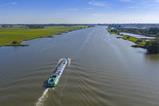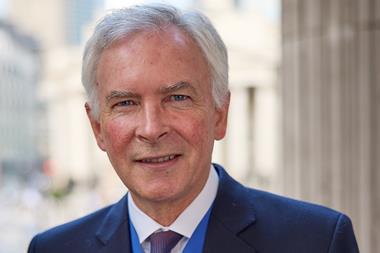Roughly four in 10 pension funds plan to increase their exposure to private equity, infrastructure and private debt in the next 12 months as they believe non-listed assets are the best instruments to deliver on sustainability and impact pledges, according to a survey by asset manager Schroders.
For its annual Global Institutional Investor Survey, Schroders interviewed 770 global institutional investors, 59% of which were pension funds. Interviewees proved intent to further increase their allocation to private assets, despite especially private equity still being viewed as expensive.
Net zero: US-Europe divide
European pension schemes are leading the way in the journey towards net zero, with 49% having committed to a carbon-free investment portfolio by 2050.
Four in 10 European funds say they are already implementing a strategy with interim-target to reach net-zero. Only 10% of European schemes have no net zero plans.
How different the situation is across the pond: four in 10 US investors don’t have any intention to become carbon-neutral, and only 17% have already started implementing their net zero plans.
Half of pension funds want more support in measuring and tracking net zero targets, up from 37% last year. This isn’t surprising, according to Schroders, given investors have to consider multiple factors such as their definition of a decarbonisation pathway, engagement strategy, and science-based targets amongst other things.
This year’s results also showed that 49% of investors believe that a greater consensus is required around the respective frameworks and methodologies which measure net zero pathways, in order for them to achieve their commitments.
“Investors are aware that private assets are plugged directly into the durable trends of disruption and progress that will be catalysed by rapid improvements in artificial intelligence technology, the ongoing energy transition and decarbonisation, as well as demographic change,” commented Nils Rode, chief investment officer for private assets at Schroders.
Within private assets, pension funds believe that infrastructure and natural capital investments such as forestry are best placed to deliver sustainability and impact objectives.
Two thirds of respondents expressed an appetite for investing in new sectors such as nature-based solutions and green hydrogen to achieve portfolio diversification and expand into new themes and asset classes.
Indeed, 26% of respondents said they will increase their exposure to nature-based solutions such as forestry and agriculture, a relatively new asset class, over the next 12 months.
ESG regulation concerns asset owners
An increasing number of investors consider ESG regulation and related reporting requirements, in combination with a lack of reliable and standardised data, a barrier to pursue an ESG investment strategy, according to a recent Morningstar survey among 500 asset owners.
This is up 10 to 15 percentage points from last year as investors are grappling with the consequences of the Sustainable Finance Disclosure Regulation (SFDR) and the upcoming reporting requirements emanating from the Corporate Sustainability Reporting Directive (CSRD).
Lack of clarity and rising costs related to ESG regulation continue to be painful points for investors. Among the 28% of those surveyed who say regulations have been a hindrance, 42% see ESG regulations as confusing or unclear, which is up from 29% last year
In its survey, Schroders also found regulation is seen as a paint point with three in 10 respondents saying they expect increased regulatory pressure to impact portfolio performance.
The latest digital edition of IPE’s magazine is now available

















